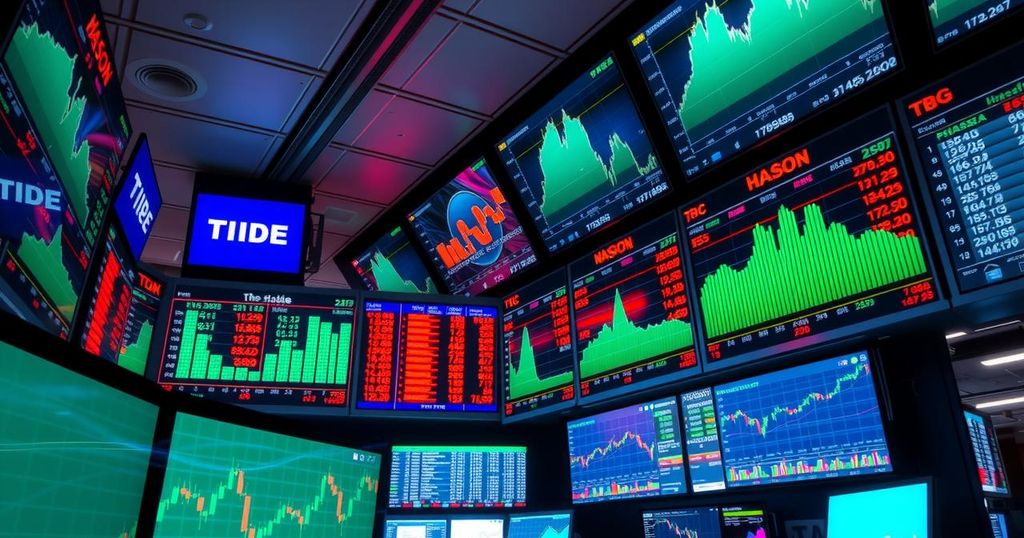economics
ASIA, BANK OF JAPAN, CHINA, DONALD TRUMP, ECONOMICS, ESOBIOTEC, EUROPE, EUROPE/ASIA, EUROPEAN COMMISSION, GEOPOLITICS, LUCY RAITANO, MEXICO, MOSCOW, NORTH AMERICA, NOVARTIS NOVN, PORSCHE SE PAH3, RUSSIA, TARIFFS, TRADE, U. S, UKRAINE, UNITED STATES, US, VA, VLADIMIR PUTIN
Isaac Bennett
0 Comments
European Futures Mixed Amid Positive Chinese Economic Signals and Geopolitical Tensions
European futures show mixed performance amidst positive signals from China and geopolitical developments. Key economic indicators from China suggest growth in retail sales, while U.S. and Russian dialogue regarding Ukraine continues. Central banks will announce policies this week, and corporate news includes AstraZeneca’s acquisition and tariff-related concerns from major companies.
European futures experienced a mixed performance on Monday, influenced by positive signals from China and ongoing geopolitical concerns ahead of a critical week for central bank announcements. The EuroSTOXX50 futures fell by 0.2%, while the FTSE and DAX futures remained stable with little change.
In the context of China’s economy, retail sales growth accelerated in January-February, indicating successful government efforts to increase domestic consumption. This positive development was further supported by the State Council’s recent introduction of a “special action plan” aimed at stimulating consumer spending.
On the geopolitical front, U.S. President Donald Trump is scheduled to engage in discussions with Russian President Vladimir Putin regarding the cessation of hostilities in Ukraine, following productive dialogues among U.S. and Russian officials in Moscow.
As for forthcoming monetary policy decisions, the Bank of Japan and the Federal Reserve are set to announce their policy directions on Wednesday, with the Bank of England following on Thursday.
In corporate developments, AstraZeneca, a pharmaceutical company, announced its intention to acquire biotechnology firm EsoBiotec for an estimated $1 billion. Regarding Volkswagen, its largest shareholder, Porsche SE, clarified that it does not plan to divest any voting shares in the company, countering recent media speculation.
The implications of U.S. tariffs remain a top priority for investors. Novartis, the Swiss pharmaceutical giant, indicated it would monitor the anticipated reciprocal tariff measures proposed by the United States, scheduled to take effect in early April, as per CEO Vas Narasimhan’s statement. German car manufacturer BMW has projected that tariffs could impose an expense of approximately 1 billion euros (around $1.09 billion) in the current fiscal year.
In summation, European futures reflect a cautious optimism influenced by China’s positive economic indicators while geopolitical tensions persist. Central bank policy decisions from major economies are anticipated this week, along with significant corporate transactions that could shape the market landscape. The looming effects of U.S. tariffs will continue to weigh heavily on industry leaders as they prepare for the upcoming fiscal challenges in 2023.
Original Source: www.tradingview.com




Post Comment